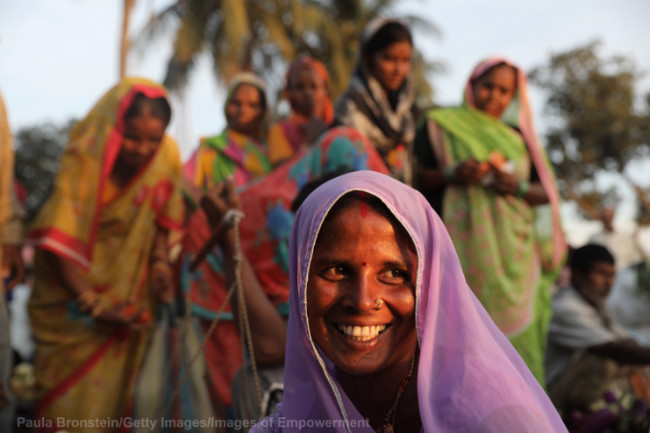
Supporting women’s economic empowerment through goat rearing in rural Bihar, India

Context
In India, goats account for more than one quarter of all livestock and provide livelihoods to an estimated 33 million households, the majority being landless farmers or marginal landholders. However, high morbidity and mortality amongst the goats limit the potential of goat rearing to enhance incomes amongst the rural poor.
Project Mesha is a community-based intervention that aims to improve quality of life for landless and marginal farming households in four blocks of Muzaffarpur district, in Bihar, by strengthening goat farming. The project was implemented in 2017 by Aga Khan Foundation’s Aga Khan Rural Support Programme and supported by the Bihar Rural Livelihoods Promotion Society (JEEViKA) and the Bill & Melinda Gates Foundation. The programme trains women’s self-help group members to become ‘pashu sakhis’ (‘friends of animals’ in Hindi). These community veterinarians provide critical veterinary services that benefit women who rear goats and other animals as part of their livelihoods.
Before implementation, Aga Khan Rural Support Programme requested information about the relevance, feasibility, context and evaluability of the project. Responding to this request, 3ie conducted a formative evaluation in 2016 to assess goat rearing and management practices and the demand and supply constraints of veterinary services to help inform better project implementation and evaluation. Apart from the theory of change, the authors of the formative evaluation also assessed the output and outcome indicators, making suggestions as to how they could be collected in subsequent evaluation.
Evidence
The formative evaluation highlighted the economic importance of goat rearing in intervention areas, the key role played by women in managing and rearing goat flocks, and the high mortality amongst goats on account of disease spread. Findings highlighted a willingness to pay for veterinary services such as vaccinations, deworming and castration, but suggested further community engagement to identify acceptable pricing.
The study also found that goat farmers were more likely to be middle-aged women with low schooling and limited physical mobility, networks and communication skills. Training should be tailored to engage this cohort.
Evidence impacts
'The formative evaluation by 3ie was used to further refine the Project Mesha theory of change and the findings were also used to finalise the indicators for the baseline evaluation.'
Type of impact: Inform discussions of policies and programs
When subsequent phases of the evaluated programme or policy draw from the findings of the evaluation or review, and/or the study team participates in informing the design of a subsequent phase.
This is one of 3ie’s seven types of evidence use. Impact types are based on what we find in the monitoring data for an evaluation or review. Due to the nature of evidence-informed decision-making and action, 3ie looks for verifiable contributions that our evidence makes, not attribution.
Read our complete evidence impact typology and verification approach here.
Close windowThe implementing agency, Aga Khan Rural Support Programme, incorporated findings and recommendations from the formative evaluation into the design of Project Mesha. This included engaging the community in identifying prices for the different services. The implementers also ensured the training programme was designed appropriately for candidates interested in joining the Pashu Sakhi cadre. In 2018, Population Council conducted a baseline evaluation of the project. JEEViKA and the implementing agency are now planning to scale the model in 13 districts across Bihar.
Suggested citation
International Initiative for Impact Evaluation (3ie), 2020. Supporting women’s economic empowerment through goat rearing in rural Bihar, India [online summary], Evidence Impact Summaries. New Delhi: 3ie.
Related
Meet the ‘pashu sakhis’ of rural Bihar
This news article describes the programme that is now being implemented in collaboration with JEEViKA.
Evidence impact summaries aim to demonstrate and encourage the use of evidence to inform programming and policymaking. These reflect the information available to 3ie at the time of posting. Since several factors influence policymaking, the summaries highlight contributions of evidence rather than endorsing a policy or decision or claiming that it can be attributed solely to evidence. If you have any suggestions or updates to improve this summary, please write to influence@3ieimpact.org